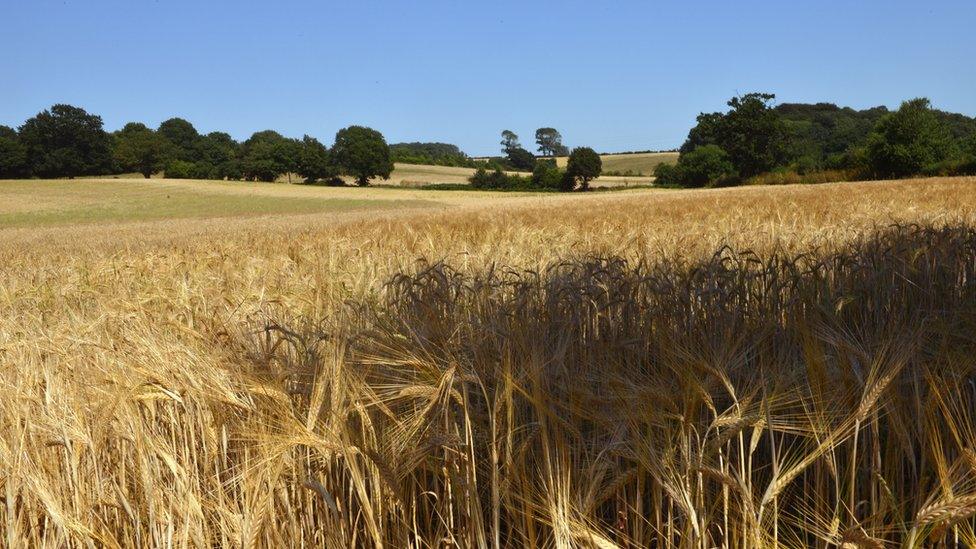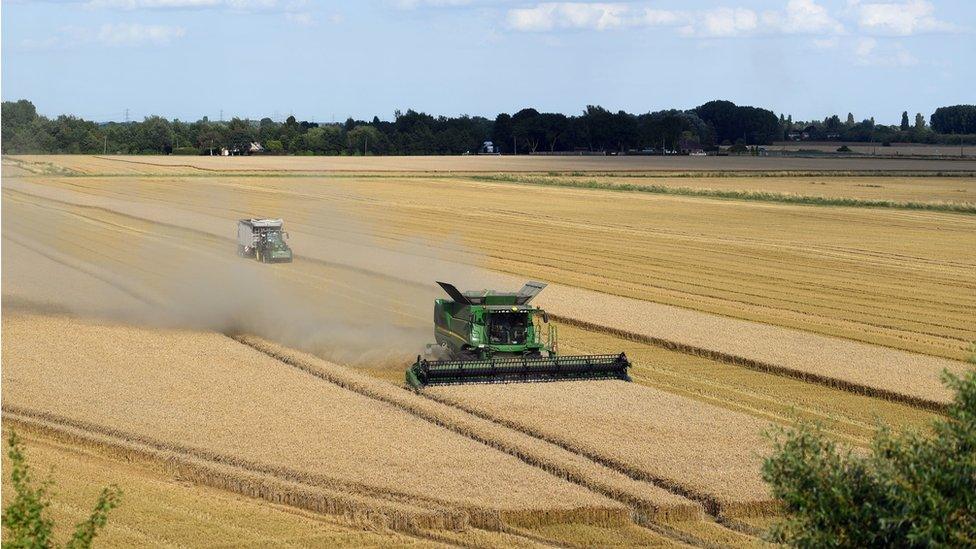Huge knowledge gap over health of soil
- Published

A vital knowledge gap about England’s environment has been uncovered by soil campaigners.
They have discovered that just 0.41% of the cash invested in environmental monitoring goes on examining the soil.
That’s despite the fact that soils round the world – including in the UK – are said to be facing a crisis.
The figures are startling: £60.5m goes to monitoring water quality, £7.65m to checking on air – but just £284,000 to auditing soil.
The mismatch was revealed in a Freedom of Information (FoI) request by the Sustainable Soils Alliance (SSA).
Its director, Ellen Fay, told BBC News: “This figure is staggering – but not surprising. It reflects the widespread under-investment in soil health compared to air and water.
“We could be actually saving money – and the environment – by investing in soil monitoring because understanding soil would tell us a great deal about the health of our water and air too.”
The Department for Environment, Food and Rural Affairs (Defra) told BBC News it was planning to design an indicator for healthy soils, and to establish a new national soil monitoring scheme.
It says powers in the Agriculture Bill could be used to support the monitoring.
But the SSA says it has seen no evidence that Defra will commit to funding soil monitoring.
Raising concerns
It comes as concern about the state of soil has been running high.
A report by the Commons Environment Audit Committee in 2016 warned that some of the UK’s most fertile fields were losing so much soil they could become unproductive within a generation.
That’s because modern farming methods typically don’t protect the soil from losing its carbon content (vital for combating climate change) or from being washed off by heavy rain.
Yet the FoI reveals that Natural England’s commitment to soil monitoring stretches to assessing just 20 soil plots across four national nature reserves.
The SSA – a group of farmers, academics and environmentalists - says under-investment in soil monitoring is leaving the public in the dark about the state of the countryside and leading to heightened flood risk, threats to food security and loss of biodiversity.

Its spokesman Chris Collins said: “There is a firm commitment to sustainable soil management by 2030 in the 25-year Environment Plan and to improved soil health in the new Agriculture Bill.
“To reverse the degradation of our soils and return them to a healthy state nationally we need a long-term commitment to monitoring - both at farm and national level.
“Without a functioning monitoring programme we are being kept in the dark over the state of our soils.’’
Professor Bridget Emmett from the Centre for Hydrology and Ecology told BBC News: “This has been a frustration for a long time.
“What’s the state of our soil - we simply don't know.
Easy monitoring
“It’s not difficult to monitor soils: they don't migrate like birds, they don't have peak flows like rivers, they just stay where they are.”
The former MP Mary Creagh chaired the parliamentary committee that reported on the state of the soil in 2016.
“It’s hopeless”, she told BBC News. “There’s been no plan and no progress. We proposed taking a small slice of the grants that farmers get and using it for soil monitoring. It hasn’t happened.
“How much soil has flooded off fields in last six months as the rain has poured down? What action have farmers been taking? Their soil is silting up rivers – and they’re losing their growing matter. We said soil was a Cinderella topic - it still is”
Mark Bridgeman, from the landowners' group, the CLA, told BBC News: "The CLA successfully lobbied for the inclusion of soil health as one of the public benefits to be funded under the powers in the Agriculture Bill, as it is the basis of food production and needs to be carefully managed.
"It is clear that adequate funding needs to be targeted towards protecting this vital natural resource as a public good. But the measurement of soil health is complex and we need more research to develop tools that all farmers can use to monitor their soils."
Follow Roger on Twitter., external